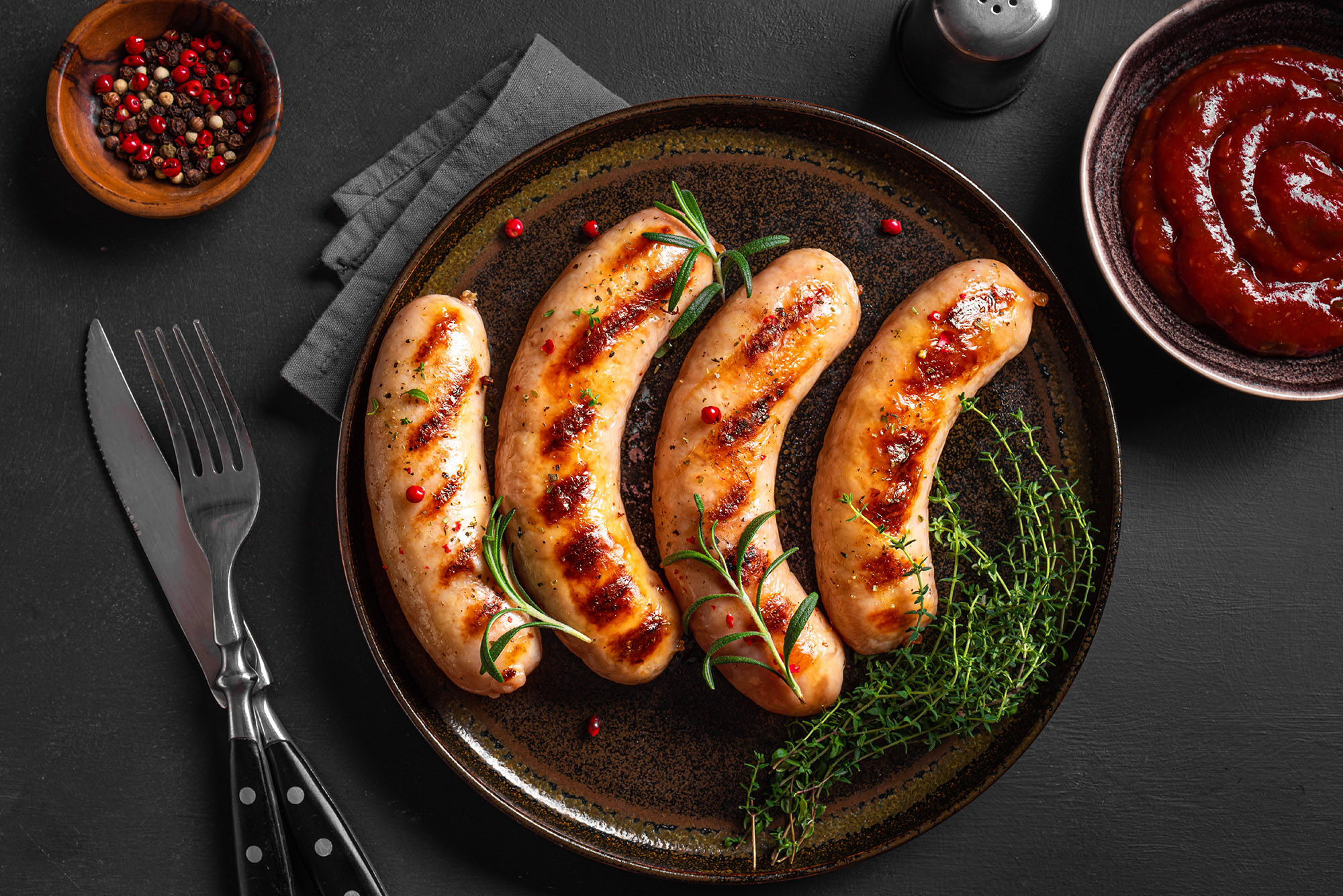

Myriameat develops hybrid sausages with cell-cultivated meat in EU-backed project
The Göttingen-based startup Myriameat GmbH is working with two industry partners on an ambitious project to create hybrid sausages that combine conventional meat with cell-cultivated pork. Funded by the European Regional Development Fund (ERDF) and the state of Lower Saxony under its program for more developed regions, the initiative represents one of the first attempts in Germany to merge cultured meat technology with traditional food production.
Unlike many hybrid products that pair conventional meat with plant-based ingredients, Myriameat’s prototype relies exclusively on animal-derived cells alongside conventional pork. The company has developed a process based on induced pluripotent stem cells (iPSCs) that allows them to generate real muscle tissue, not just amorphous cell masses. The result is meat that is structurally closer to conventional pork than earlier cultivated prototypes.
This, the company says, is a genuine technological leap. 'Less animal, more food' is how the project has been described – offering a way to reduce the proportion of slaughtered meat in products without requiring consumers to compromise on taste or texture.
The hybrid approach reflects a pragmatic pathway for cultivated meat technology. By blending cell-cultivated pork with conventional pork, Myriameat aims to lower the environmental footprint of sausages while delivering the flavor and mouthfeel that consumers expect. In the long term, the company envisions its technology forming the basis for a new generation of fully animal-free meat products, from deli meats to roasts and even premium cuts like filets.
The support from ERDF and Lower Saxony is designed to accelerate innovation in regional biotechnology and sustainable food production. For Myriameat, it is also a chance to showcase how local research and development can contribute to the broader European effort to build more resilient and sustainable food systems.
Cultivated meat startups across Europe face the dual challenge of scaling production while navigating complex regulatory environments. By focusing first on hybrid applications, Myriameat can reduce technical and cost barriers while demonstrating consumer acceptance. Hybrid products also allow for gradual reductions in conventional meat content as the efficiency and affordability of cultivated processes improve.
The scientific foundation of Myriameat’s work lies in its iPSC platform. Induced pluripotent stem cells are adult cells reprogrammed to behave like embryonic stem cells, meaning they can differentiate into multiple cell types – in this case, forming the muscle fibers that make up pork. By cultivating these cells into structured tissue rather than loose aggregates, the company is able to more faithfully reproduce the texture of meat.
Germany has long been a hub for both traditional meat production and food technology innovation. Myriameat’s project reflects a growing recognition that the future of protein will not be either conventional or cultivated, but potentially a spectrum of products blending the two. The company’s focus on sausages is also significant: as one of the most widely consumed meat formats in Germany and beyond, they represent a familiar entry point for introducing consumers to new production methods.
The broader implications of Myriameat’s work extend beyond sausages. Should its platform prove scalable, it could enable a wide range of hybrid and eventually fully cultivated pork products. This would allow the company – and the region – to position itself at the forefront of Europe’s cell-cultivated meat sector, which is still in its early stages compared to developments in the USA and parts of Asia.
While timelines for market entry remain uncertain, Myriameat’s EU-backed project signals growing institutional support for cultivated meat research in Germany. With increasing pressure on agriculture to reduce greenhouse gas emissions, conserve land, and improve animal welfare, projects like this highlight how biotechnology can work alongside – and not necessarily in opposition to – existing food traditions.
As Myriameat pursues its hybrid strategy, the company is effectively bridging the gap between today’s meat industry and tomorrow’s protein solutions. By reducing the reliance on conventional pork while retaining the qualities that consumers value most, it hopes to chart a pathway for cultivated meat that is both technologically feasible and culturally resonant.
If you have any questions or would like to get in touch with us, please email info@futureofproteinproduction.com


-p-800.jpg)



